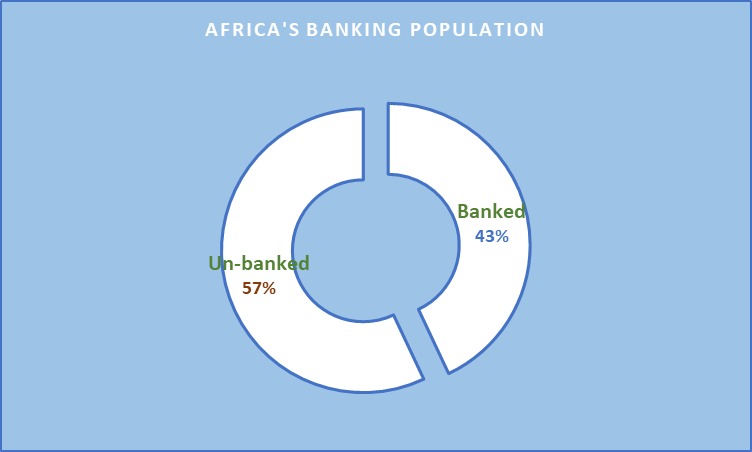Group Therapy And ADHD: A Comprehensive Guide

Table of Contents
Understanding the Benefits of Group Therapy for ADHD
Group therapy offers a powerful approach to managing ADHD symptoms and improving overall quality of life. Unlike individual therapy, it provides a unique environment with distinct advantages.
Shared Experiences and Reduced Isolation
One of the most profound benefits of group therapy for ADHD is the opportunity to connect with others who understand the daily struggles. This shared experience combats the pervasive feelings of isolation and shame often associated with the condition.
- Reduced feelings of shame and isolation: Knowing you're not alone in your experiences provides immense relief and validation.
- Validation of experiences: Hearing others share similar challenges normalizes your own struggles and reduces self-blame.
- Learning coping mechanisms from peers: Observing and learning from others' successes builds confidence and provides practical strategies.
The sense of community fostered in these groups creates a powerful support network, transforming feelings of alienation into belonging and shared understanding. This shared journey significantly contributes to improved self-esteem and emotional well-being.
Skill-Building and Practical Strategies
Group therapy for ADHD provides a structured setting for learning and practicing essential coping skills. A skilled therapist guides participants through exercises and discussions designed to build specific abilities crucial for managing ADHD symptoms.
- Improved time management techniques: Learning and practicing techniques like time blocking, prioritization, and using productivity apps.
- Organization strategies: Developing systems for managing paperwork, belongings, and daily tasks.
- Impulse control exercises: Practicing mindfulness and self-regulation techniques to better control impulsive behaviors.
- Communication skills development: Improving assertive communication, active listening, and conflict resolution skills.
These practical strategies, learned and refined within the group, translate into tangible improvements in daily life, leading to increased organization, reduced stress, and improved relationships.
Accountability and Support
The collaborative nature of group therapy offers a unique form of accountability and support. The shared commitment to goals and progress creates a dynamic that fosters motivation and encourages consistent effort.
- Peer support and encouragement: Receiving encouragement and understanding from peers strengthens resilience during challenging times.
- Shared accountability for goals: Knowing that others are working towards similar goals creates a sense of shared responsibility.
- Increased motivation to maintain progress: The supportive environment encourages continued effort and prevents feelings of discouragement.
This ongoing support system reinforces positive changes and provides encouragement when facing setbacks, contributing to long-term success in managing ADHD.
Finding the Right Group Therapy Program for ADHD
Choosing the right group therapy program is crucial for maximizing its benefits. Several factors should be considered when making this important decision.
Types of Group Therapy for ADHD
Different types of group therapy cater to various needs and preferences. Understanding these differences is key to finding the best fit.
- Cognitive-behavioral therapy (CBT) groups: Focus on identifying and changing negative thought patterns and behaviors contributing to ADHD symptoms.
- Support groups: Provide a safe space for sharing experiences, emotional support, and building connections with others facing similar challenges.
- Psychoeducational groups: Focus on providing education and information about ADHD, its symptoms, and effective management strategies.
The choice between these types depends on individual needs and preferences. Some individuals might benefit from a structured CBT approach, while others might find more comfort in the supportive nature of a peer-led group.
What to Look for in a Therapist and Group
Selecting a qualified therapist and a well-structured group is essential for a positive experience.
- Therapist's experience with ADHD: Look for a therapist with specific expertise in ADHD and experience working with adults or children with ADHD, depending on your needs.
- Group size and dynamics: Smaller groups often allow for more individual attention and interaction. Consider whether a larger or smaller group would be a better fit for your personality.
- Group structure and goals: Ensure the group's structure and goals align with your individual needs and expectations.
- Comfortable and supportive environment: A safe and welcoming atmosphere is crucial for open sharing and personal growth.
Thorough research and potentially speaking with the therapist before joining a group can help ensure a good fit.
Addressing Concerns and Potential Challenges
It's natural to have concerns about group therapy, especially when dealing with personal and sensitive issues.
- Discomfort sharing personal information: Therapists create a safe and confidential environment to help alleviate these concerns.
- Navigating challenging group dynamics: Therapists are trained to mediate and guide group interactions, ensuring a productive and positive experience.
- Building trust and rapport within the group: This develops naturally over time as participants share experiences and build connections.
Addressing these concerns proactively and choosing a supportive group can help mitigate potential challenges and foster a positive therapeutic experience.
Integrating Group Therapy with Other ADHD Treatments
Group therapy is often most effective when integrated with other treatments as part of a holistic approach.
Combining Group Therapy with Medication
Medication can significantly alleviate some ADHD symptoms, making it easier to engage in and benefit from group therapy.
- Medication management: Medication helps manage core symptoms, allowing for better focus and participation in group sessions.
- Improved therapy effectiveness: Managing symptoms with medication enhances the ability to learn and implement strategies discussed in group therapy.
- Holistic approach to ADHD treatment: Combining medication and therapy addresses both the biological and psychological aspects of ADHD.
It's important to remember that group therapy complements medication, it does not replace it.
Combining Group Therapy with Individual Therapy
Individual therapy provides personalized support tailored to individual needs, complementing the peer support offered in group settings.
- Personalized support: Individual therapy addresses specific personal challenges and concerns not directly addressed in group settings.
- Addressing individual needs: Individual sessions allow for a deeper exploration of personal issues and tailored strategies.
- Group support for implementing strategies learned in individual sessions: Group therapy provides a supportive environment for practicing and reinforcing strategies learned in individual sessions.
The combination of individual and group therapy offers a comprehensive approach, maximizing the benefits of both modalities.
Conclusion
Group therapy for ADHD offers a powerful combination of support, skill-building, and accountability, significantly improving the lives of those affected by this condition. By fostering a sense of community, teaching coping strategies, and providing ongoing encouragement, group therapy helps individuals manage symptoms, improve their quality of life, and thrive. Finding the right program and therapist is crucial for success. Research group therapy for ADHD options in your area, considering the different types and approaches discussed. Speak to your doctor or therapist to discuss whether group therapy for ADHD is the right choice for you. Take the first step towards a more fulfilling and manageable life – explore the transformative power of group therapy for ADHD today.

Featured Posts
-
 Porsche Koezuti Modell F1 Motor Teljesitmenye
Apr 29, 2025
Porsche Koezuti Modell F1 Motor Teljesitmenye
Apr 29, 2025 -
 Pw Cs Sub Saharan African Retreat Reasons And Consequences
Apr 29, 2025
Pw Cs Sub Saharan African Retreat Reasons And Consequences
Apr 29, 2025 -
 Country Stars Spouse Refutes Caretaker Report Regarding Their Son
Apr 29, 2025
Country Stars Spouse Refutes Caretaker Report Regarding Their Son
Apr 29, 2025 -
 Chinas Nuclear Power Expansion 10 New Reactors Approved
Apr 29, 2025
Chinas Nuclear Power Expansion 10 New Reactors Approved
Apr 29, 2025 -
 Luksusowy Porsche 911 Za 1 33 Mln Zl Podbija Serca Polakow
Apr 29, 2025
Luksusowy Porsche 911 Za 1 33 Mln Zl Podbija Serca Polakow
Apr 29, 2025
Latest Posts
-
 Google Slides Free Download For Android I Os Web App Apk
Apr 30, 2025
Google Slides Free Download For Android I Os Web App Apk
Apr 30, 2025 -
 Glissieres De Securite Routiere Impact Sur La Mortalite Et L Amenagement Des Routes
Apr 30, 2025
Glissieres De Securite Routiere Impact Sur La Mortalite Et L Amenagement Des Routes
Apr 30, 2025 -
 Free Google Slides Download Android I Os Web App Apk
Apr 30, 2025
Free Google Slides Download Android I Os Web App Apk
Apr 30, 2025 -
 Securite Routiere Les Glissieres Solution Efficace Pour Reduire La Mortalite
Apr 30, 2025
Securite Routiere Les Glissieres Solution Efficace Pour Reduire La Mortalite
Apr 30, 2025 -
 Yate House Explosion Leaves Three Injured Investigation Underway
Apr 30, 2025
Yate House Explosion Leaves Three Injured Investigation Underway
Apr 30, 2025
